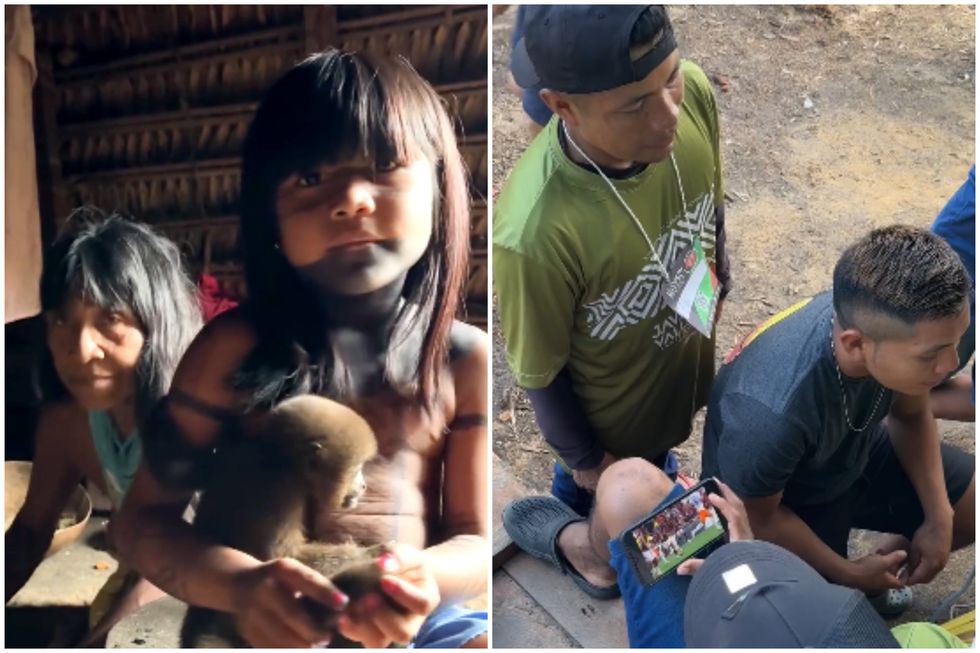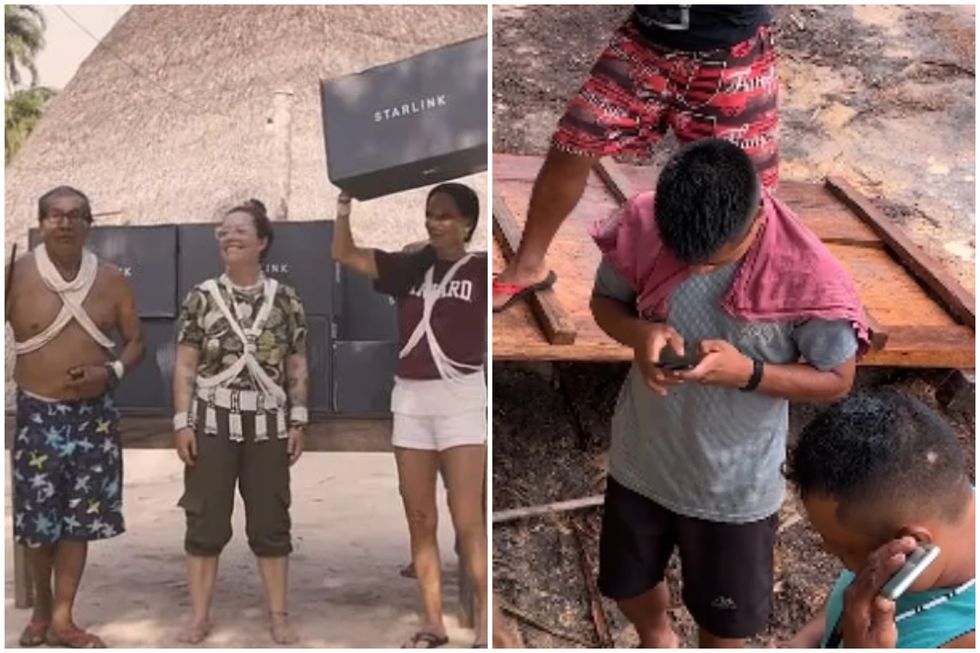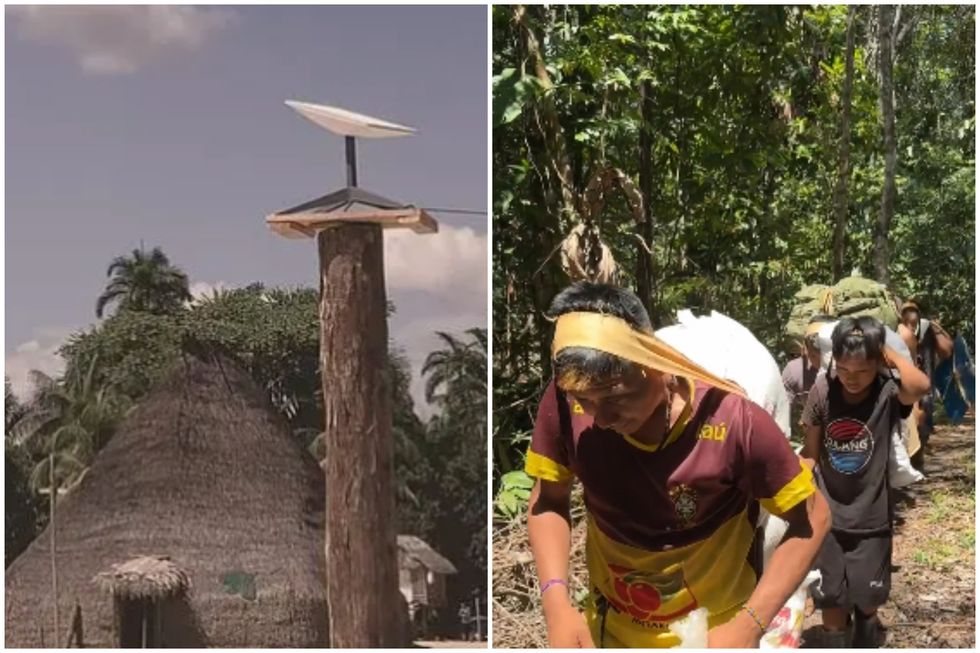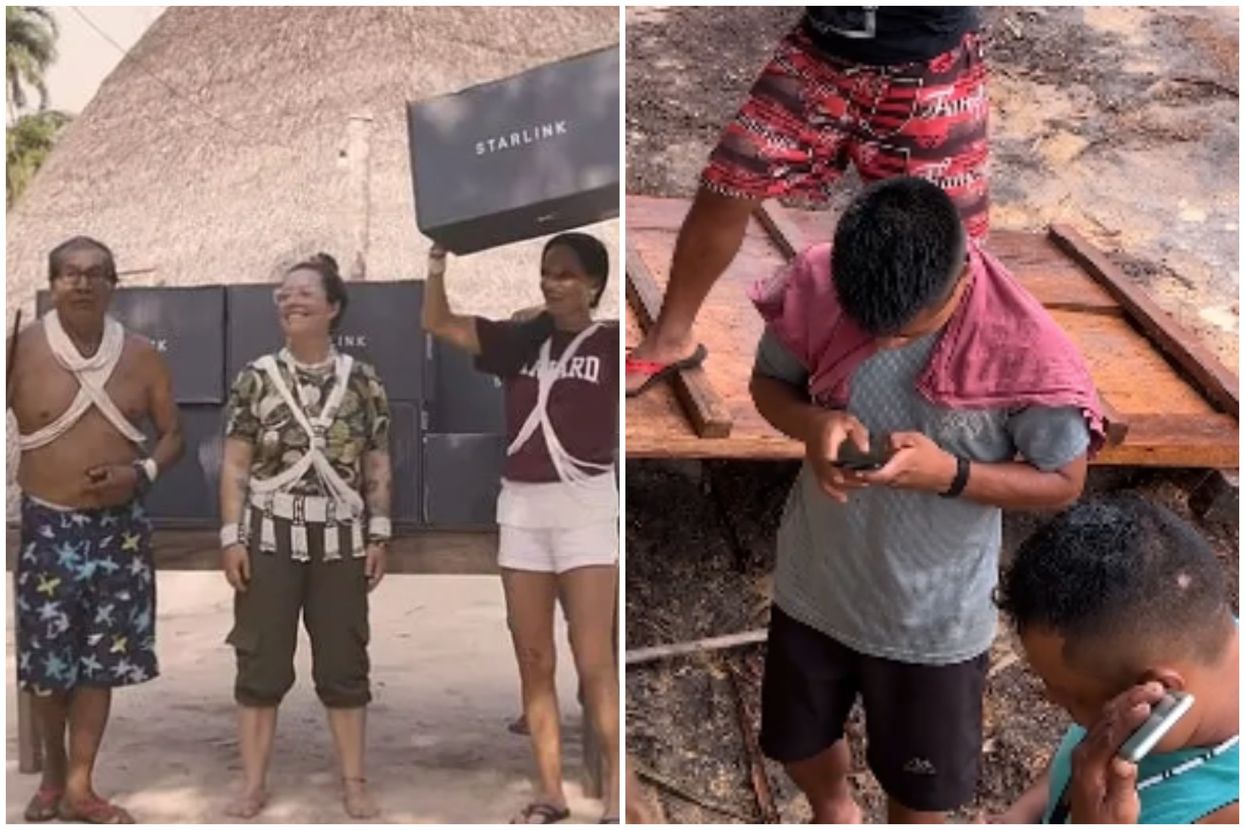Science & Tech
Harriet Brewis
Jun 05, 2024
Rare footage of uncontacted tribe in the Amazon
content.jwplatform.com
What started as a moment of optimism and excitement was swiftly transformed into something worrying and sinister after a remote tribe in the Amazon rainforest was finally hooked up to the internet.
The Marubo people had resisted modernity and preserved their indigenous way of life, in one of the most isolated stretches of the planet, for centuries.
But then, in September, they found themselves equipped with high-speed internet, thanks to Elon Musk.
The tribe is one of hundreds across Brazil that have been given access to the web through Starlink, the SpaceX subsidiary which provides satellite internet coverage to almost 100 countries and aims to provide global mobile broadband.
But rather than feel beautifully connected to the world, the installation has left the 2,000-member Marubos feeling bitterly divided, as pornography and social media poison its youngsters.
“When it arrived, everyone was happy,” Tsainama Marubo, 73, told The New York Times (NYT), whose reporters travelled to the tribe’s remote villages (some of which take a week to reach).
“But now, things have gotten worse.”

Tsainama explained that the internet has brought a number of undeniable benefits, such as the ability to video chat with faraway loved ones or call for help in emergencies.
However, she said, the youth has grown increasingly disinterested in more traditional activities such as making dyes and jewellery from berries and shells.
“Young people have gotten lazy because of the internet,” she lamented. “They’re learning the ways of the white people.”
After just nine months with Starlink, the Marubo already find themselves faced with the same issues that plague western families: addictive social networks; misinformation; scams; violent video games and minors watching adult content.
Alfredo Marubo, leader of a Marubo association of villages, has become the tribe’s most vocal critic of the internet.
He told the NYT that he worried that his culture’s oral history and customs will be lost because now “everyone is so connected that sometimes they don’t even talk to their own family.”
He admitted that he felt most concerned by the new-found interest in pornography, particularly given that Marubo culture frowns upon mere kissing in public.
“We’re worried young people are going to want to try it,” he said of the graphic sex depicted in videos which young men now send each other in group chats.
Alfredo added that some leaders have already noticed more aggressive sexual behaviour among their youngsters.

Meanwhile, Kâipa Marubo, a father of three, said that whilst he was happy the internet was helping to educate his children, he also felt concerned about the first-person-shooter video games his two sons now play.
“I’m worried that they’re suddenly going to want to mimic them,” he admitted, adding that he tried to delete the games but believed his sons had other hidden apps.
And yet, many tribe members continue to extol the internet’s positive power and potential.
Enoque Marubo, who has spent time living and working in the city – notably as a graphic designer for Coca-Cola – said the biggest benefit has been in emergencies.
He pointed out that a venomous snake bite can require swift rescue by helicopter but, before the internet, the Marubo relied on amateur radio to relay urgent messages through several villages in order to reach the authorities.
Now, such calls are instantaneous. “It’s already saved lives,” he said.
Elsewhere, leaders used WhatsApp to coordinate between villages and alert emergency services to health issues and environmental destruction, while Marubo teachers use the technology to share lessons with students in different areas.
Still, Enoque conceded that Starlink’s arrival had an immediate and extreme impact: “It changed the routine so much that it was detrimental,” he acknowledged.
“In the village, if you don’t hunt, fish and plant, you don’t eat.”
Meanwhile, TamaSay Marubo, 42, the tribe’s first woman leader stressed that while some young people now “just want to spend the whole afternoon on their phones,” others continue to “maintain our traditions.”

Interestingly, Enoque’s father, Sebastião – one of the first Marubo to move outside the forest back in the 1960s – said the tribe’s internet journey had been foretold.
He explained that, decades ago, the most respected Marubo shaman had visions of a hand-held device that could connect with the entire world.
“It would be for the good of the people,” he’d said. “But in the end, it wouldn’t be.”
“In the end, there would be war.”
Nevertheless, his son Enoque insisted: “I think the internet will bring us much more benefit than harm, at least for now.”
And, regardless, there’s no going back.
“The leaders have been clear,” he said. “We can’t live without the internet.”
Sign up for our free Indy100 weekly newsletter
How to join the indy100's free WhatsApp channel
Have your say in our news democracy. Click the upvote icon at the top of the page to help raise this article through the indy100 rankings
Top 100
The Conversation (0)













